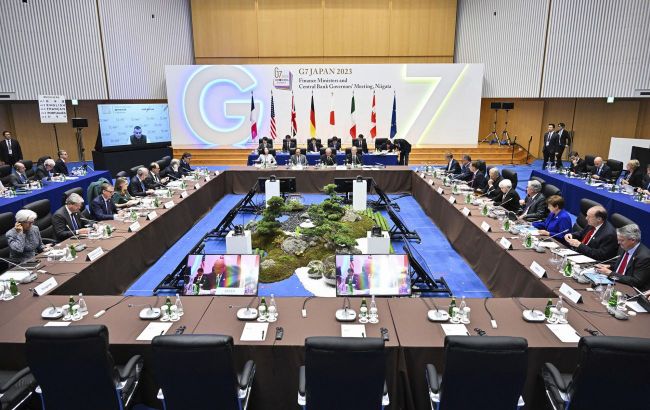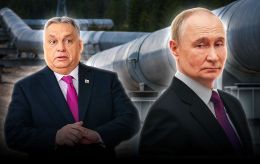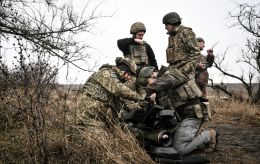U.S. proposes to G7 to confiscate $300 billion of Russian assets - FT
 U.S. proposes to G7 to confiscate $300 billion of Russian assets (Photo: Getty Images)
U.S. proposes to G7 to confiscate $300 billion of Russian assets (Photo: Getty Images)
The United States is proposing that G7 countries confiscate $300 billion of frozen Russian assets for the benefit of Ukraine. Allies are rushing to coordinate the plan by the second anniversary of Russia's full-scale invasion, according to the Financial Times.
The agency emphasizes that no decisions have been made yet, and the issue remains under discussion in European capitals. Although no decisions have been made yet, the acceleration of work on confiscating Russian assets for Ukraine indicates the growing importance of this issue.
The confiscation of assets was discussed this month by the finance ministers of the G7, as well as their deputies. According to people familiar with the negotiations, discussions focused on developing such a policy and assessing associated risks.
The United States, with the support of the United Kingdom, Japan, and Canada, proposed to continue preparatory work to have options ready by February 24. Three working groups proposed by the United States will study legal issues regarding confiscation, how to apply confiscated assets, risk reduction, and options for best directing them to Ukraine.
Germany, France, Italy, and the EU have expressed some reservations and the need to assess the legality of asset confiscation carefully. As FT notes, several European ministers also called for maintaining secrecy.
The United States has not officially supported the arrest of Russian assets. Still, the G7 distributed a document stating that it would be legal and a "countermeasure to encourage Russia to stop its aggression."
In the EU, it is also believed that asset confiscation would be insufficient to meet Ukraine's reconstruction needs and should not replace financial support to Kyiv in 2024.
Transfer of Russian assets to Ukraine
Earlier, U.S. Secretary of State Antony Blinken confirmed that Ukraine would, for the first time, receive assets confiscated from Russian oligarchs under sanctions. According to him, the money will be directed to support Ukrainian veterans. This is the first step by the United States in transferring frozen Russian assets to Ukraine.
In addition, recently, The New York Times reported that the United States is urgently discussing with partners the use of frozen Russian assets to aid Ukraine.
The White House responded to media reports, emphasizing that specific discussions with allies are ongoing and it is too early to talk about transferring Russian assets to Ukraine.

